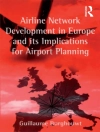At the interface between culture and tourism lies a series of deep and challenging issues relating to how we deal with issues of political engagement, social justice, economic change, belonging, identity and meaning. This book introduces researchers, students and practitioners to a range of interesting and complex debates regarding the political and social implications of cultural tourism in a changing world. Concise and thematic theoretical sections provide the framework for a range of case studies, which contextualise and exemplify the issues raised. The book focuses on both traditional and popular culture, and explores some of the tensions between cultural preservation and social transformation.
The book is divided into thematic sections – Politics and Policy; Community Participation and Empowerment; Authenticity and Commodification; and Interpretation and Representation – and will be of interest to all who wish to understand how cultural tourism continues to evolve as a focal point for understanding a changing world.
Зміст
Chapter 1 Politics, Power and Play: The Shifting Contexts of Cultural Tourism – Mike Robinson and Melanie Smith
Part 1: Politics and Cultural Policy
Chapter 2 Cultural Politics, Cultural Policy and Cultural Tourism – Jim Butcher
Chapter 3 Heritage Tourism Politics in Ireland – Catherine Kelly
Chapter 4 Heritage Tourism and Revitalisation of Barony Life in Norway – Arvid Viken
Chapter 5 Cultural Tourism and Socioeconomic Development in Poland – Barbara Marciszewska
Part 2: Community Participation and Empowerment
Chapter 6 Cultural Tourism, Community Participation and Empowerment – Stroma Cole
Chapter 7 Cultural Tourism in African Communities: A Comparison Between Cultural Manyattas in Kenya and the Cultural Tourism Project in Tanzania – Rene van der Duim, Karin Peters and John Akama
Chapter 8 Township Tourism: Blessing or Blight? The Case of Soweto in South Africa – Jenny Briedenhann and Pranill Ramchander
Chapter 9 Community Empowerment through Voluntary Input: A Case Study of Kiltimagh Integrated Resource Development (IRD) – Frances Mc Gettigan, Kevin Burns and Fiona Candon
Chapter 10 Raising the Status of Lappish Communities through Tourism Development - Satu Miettinen
Part 3: Authenticity and Commodification
Chapter 11 Cultural Tourism: Aspects of Authenticity and Commodification – Nicola Mac Leod
Chapter 12 The Process of Authenticating Souvenirs – Frans Schouten
Chapter 13 Pataxó Tourist Arts and Cultural Authenticity – Rodrigo de Azeredo Grünewald
Chapter 14 Authenticity and Commodification of Balinese Dance Performances – Tanuja Barker, Darma Putra and Agung Wiranatha
Part 4: Interpretation
Chapter 15 Interpretation in Cultural Tourism – László Puczkó
Chapter 16 Interpretation in the House of Terror, Budapest – Tamara Rátz
Chapter 17 UK Museum Policy and Interpretation: Implications for Cultural Tourism – Josie Appleton
Chapter 18 Caves in Belgium: Standardisation or Diversification? – Anya Diekmann, Géraldine Maulet and Stéphanie Quériat
Chapter 19 Liberating the Heritage City: Towards Cultural Engagement – Marion Stuart-Hoyle and Jane Lovell
Про автора
Melanie Kay Smith (Ph D) is an Associate Professor, Researcher and Consultant whose work focuses on urban planning, cultural tourism, wellness tourism and the relationship between tourism and wellbeing. She is Programme Leader for BSc and MSc Tourism Management at Budapest Metropolitan University in Hungary. She has lectured in the UK, Hungary, Estonia, Germany, Austria and Switzerland as well as being an invited keynote speaker in many countries worldwide. She was Chair of ATLAS (Association for Tourism and Leisure Education) for seven years and has undertaken consultancy work for UNWTO and ETC as well as regional and national projects on cultural and health tourism. She is the author of more than 100 publications.












